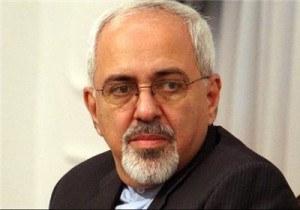November 15-2013

Foreign Minister Mohammad-Javad Zarif says sectarian tensions between Shia and Sunni Muslims is probably the most serious threat to world security. But, where the regime for years previously blamed the United States for fanning sectarian passions, Zarif blame unnamed Sunni countries.
Speaking to the BBC, Zarif said some Sunni countries are guilty of “fear-mongering.” “Some people have fanned the animosity for short-sighted political interests,” he said.
The Wahhabi sect that prevails in Saudi Arabia has always been the harshest branch of Sunnism in condemning Shiism as straying from the path of Islam.
But in recent years, Syria, Iraq, Bahrain, Afghanistan and Pakistan have all suffered from sectarian violence. And Malaysia, Egypt and Morocco, none of which has many Shias, have all seen religious figures leading campaigns against Shiism in just the last year.
Zarif said conflict between Sunnis and Shias was “the most serious security threat not only to the region, but to the world at large.” He didn’t explain how Sunni-Shia frictions impacted the world beyond Islam.
Sectarian conflict has been a fact of life in the Islamic world since shortly after the faith was founded almost 1,400 years ago. But upheaval in the Middle East since the US-led invasion of Iraq in 2003 has made it much worse.
The Syrian war did not start as a sectarian conflict but it has become one. And it was in the context of the Syrian civil war that Zarif spoke out. Zarif said all sides should forget their differences over Syria to oppose sectarianism. “I think all of us,… regardless of our differences on Syria, we need to work together on the sectarian issue,” he told the BBC.
Without naming any country directly, he accused Sunni Arab leaders of “fanning the flames” of sectarian violence. “This business of fear-mongering has been a prevalent business,” he said. “Nobody should try to fan the flames of sectarian violence. We should reign it in, bring it to a close, try to avoid a conflict that would be detrimental to everybody’s security.”
In many cases, anti-Shia campaigners link their religious concerns to Iran, asserting that Iran uses Shias throughout the world to promote Iranian influence and project Iranian power throughout the Islamic world.
That theory came to the fore in Pakistan shortly after the Iranian revolution. A Pakistani militant groups constantly kills Pakistani Shias, accusing them of being a fifth column for Iran.
In Egypt, the government recently suspended tourist flights from Iran under pressure from Sunni fanatics who have claimed the tourists aren’t interested in Egyptian history but are proselytizing for Shiism. The Egyptian government doesn’t support that line, but feels the pressure of the fanatics.
King Abdullah of Jordan has spoken of his fears of the formation of a Shiite crescent linking Lebanese Shias, Syrian Alawites and Iraqis Shia with Iran.
In Bahrain, where a Sunni monarchy rules a country with a Shiite majority, the regime has accused Iran of fomenting the disorders that have plagued he country for 2 1/2 years. US officials say Iran had nothing to do with starting the Shia uprising there, but has tried to fan the flames since the uprising erupted.
